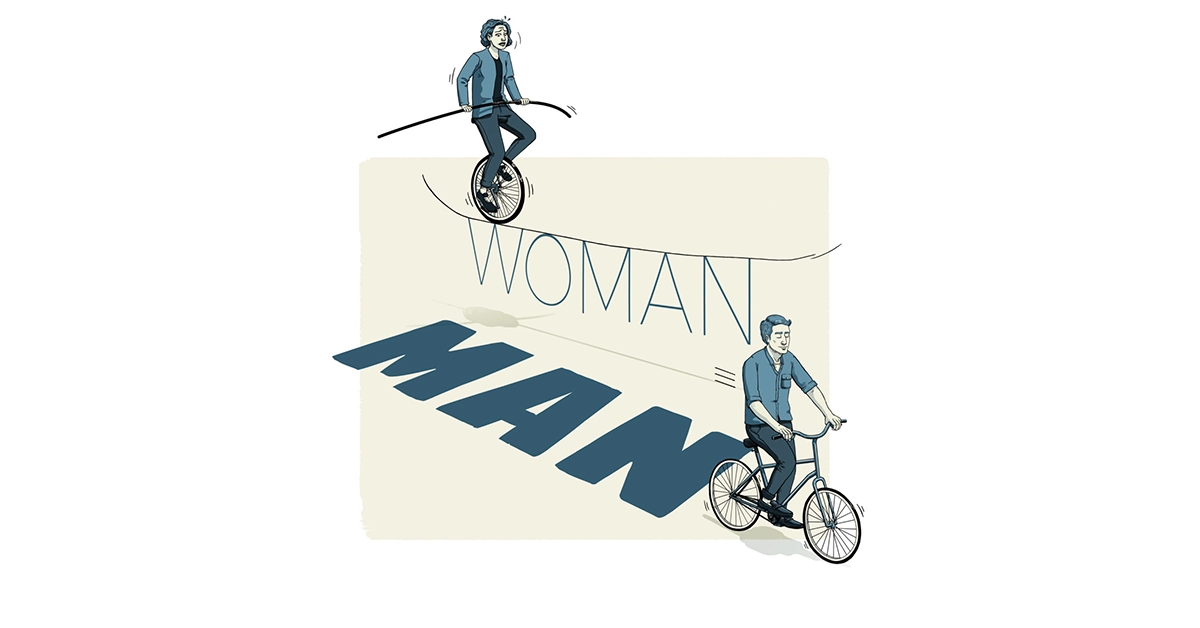As an adult female, I should feel comfortable calling myself a woman. But while I am proud of who I am as a person, the terminology feels unnatural. Whenever I start to label myself a woman, the word catches on my tongue or comes across as though I’m making a joke. It either sounds like an insult, or simply awkward or inappropriate given the context.
A lot of sexism is ingrained in our language. People in the workplace are often referred to as manpower, rather than the workforce; instead of “server,” we say “waiter” or “waitress,” depending on the perceived gender of the person serving; and from childhood, many boys are referred to as “young men,” while girls are just “little girls.”
Our language tends to be unbalanced. Calling adult females “gals,” “ladies,” or, worst of all, “girls,” puts them on unequal ground compared to adult males, who are consistently referred to as “men.” Many songs in popular culture refer to the female love interest as a girl and the male love interest as a man. For example, in the song “Loverman” by Train, the lyric goes, “I’m gonna tell him so / What a lovergirl is for / All night long I’ll wait for my loverman.” This terminology not only paints the picture of an unequal relationship, it’s also objectively creepy to think it’s better to refer to the female counterpart in an adult relationship as a girl rather than a grown woman.
In sports films, the peptalk-giving coach will often start his speech to the male team with, “Okay men,” or something similar, whereas the coach talking to the female team will refer to its members as “ladies.” It can’t have anything to do with ease of speech, as women and ladies have the same number of syllables, so this strange distaste for the word “woman” must be something rooted deeper in our psyche.
I don’t fully understand the distaste I have for referring to myself as a woman. What I do know is that being a female in today’s society can be really difficult, and historically speaking it was far worse. Being a woman used to mean being a man’s property by law, and although that’s no longer the case in Canada, some of that historical baggage around womanhood carries through.
The concept of being a true woman (whatever that means) is also practically unattainable. In order to be considered accomplished, females are often expected to be married with children, have a full-time job along with a number of hobbies, and maintain a household — sleep not being a part of the equation. In some cases this list of characteristics is an exaggeration, but overall the expectations of womanhood remain troubling. We somehow manage to simultaneously hold the ideal woman both out of reach and beneath us.
I know I’m not alone in my discomfort with the word “woman,” whether it’s for the reasons I’ve mentioned or others that are more personal. The constant battle of feeling not good enough to call myself a woman, yet also feeling uncomfortable with the term for its negative connotations and other reasons I don’t fully understand, is something that needs to be addressed in our society.
We should be proud to call ourselves women, just as men are proud to call themselves men. The reluctance I carry about calling myself a woman is something I hope will change in time, not just for my own sake but also for the young girls who are growing up right now. This is where the importance of our language use comes into play: if we don’t learn to call ourselves women with pride, younger generations won’t either.
Graphic by Kia Valdez Bettcher.





0 Comments